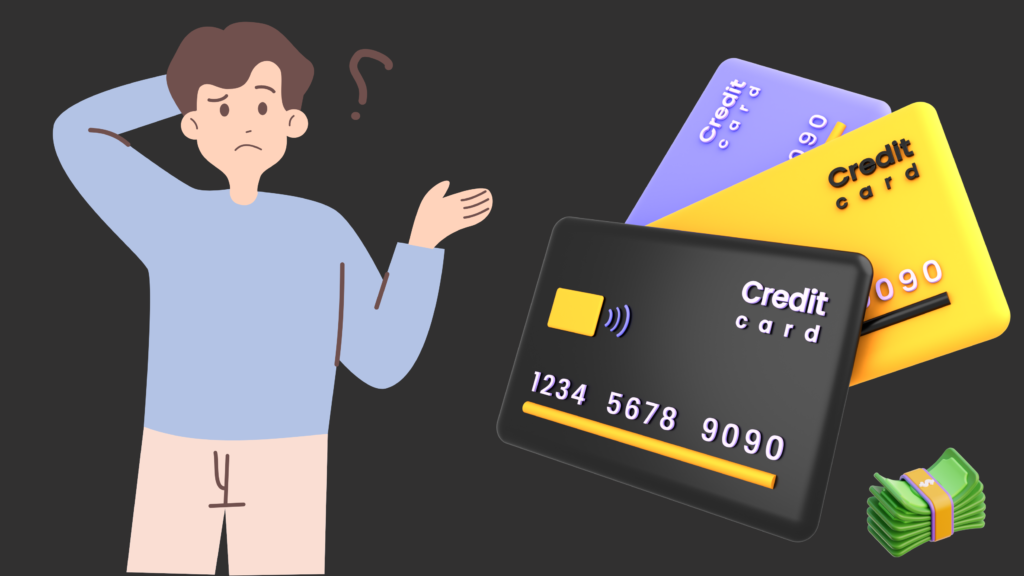Credit cards are essential in modern financial systems, offering benefits like financial security, rewards, credit building, and global acceptance. Discover why they are a necessity despite potential pitfalls.

1. Financial Convenience and Flexibility
One of the primary reasons people use credit cards is the convenience they offer. Credit cards eliminate the need to carry large amounts of cash, making transactions simpler and more secure. Whether you’re shopping online, booking travel, or dining out, credit cards provide a seamless payment method.
Moreover, credit cards offer financial flexibility by allowing users to make purchases now and pay for them later. This can be particularly useful during emergencies or when unexpected expenses arise. The ability to defer payment can help manage cash flow more effectively, especially for those with irregular income streams.
2. Building and Maintaining Credit History
Credit cards are a crucial tool for building and maintaining a good credit history. Your credit score, which is a key indicator of your creditworthiness, is significantly influenced by how you manage your credit card accounts. Responsible use of credit cards, such as making payments on time and keeping balances low, can positively impact your credit score.
A good credit score is essential for various aspects of financial life, including securing loans, getting favorable interest rates, and even renting apartments. Credit cards provide an opportunity to demonstrate financial responsibility, which can open doors to better financial opportunities in the future.
3. Rewards and Incentives
Many credit cards offer rewards programs that provide incentives for spending. These rewards can come in various forms, such as cashback, points, or miles, which can be redeemed for travel, merchandise, or statement credits. For frequent travelers, travel rewards credit cards can offer significant savings on flights, hotels, and other travel-related expenses.
Cashback credit cards, on the other hand, provide a percentage of your spending back as cash. These rewards can accumulate quickly, offering substantial benefits over time. By strategically using rewards credit cards, consumers can make the most of their spending and earn valuable benefits.
4. Enhanced Security and Fraud Protection
Credit cards offer enhanced security features that protect consumers against fraud and unauthorized transactions. Most credit cards come with zero liability policies, meaning cardholders are not held responsible for fraudulent charges made without their consent. This provides peace of mind, especially when shopping online or in unfamiliar locations.
Additionally, credit cards often offer more robust dispute resolution processes compared to debit cards or cash transactions. If you encounter a problem with a purchase, such as receiving a damaged item or not receiving an item at all, credit card companies can assist in resolving the issue and potentially reversing the charge.
5. Emergency Funds
Having a credit card can serve as a financial safety net in emergencies. Whether it’s an unexpected medical expense, urgent home repair, or car trouble, credit cards provide immediate access to funds when needed. While it’s important to use credit wisely and not rely solely on credit cards for emergencies, having one can offer peace of mind knowing that you have a backup plan.
6. Travel Benefits
Credit cards can be particularly advantageous for travelers. Many travel rewards credit cards offer perks such as travel insurance, trip cancellation coverage, and rental car insurance. These benefits can save travelers money and provide additional protection while on the road.
Furthermore, credit cards are widely accepted internationally, making them a convenient payment method when traveling abroad. They can also help avoid the hassle of currency exchange and provide more favorable exchange rates than cash transactions.
7. Purchase Protection and Extended Warranties
Many credit cards offer purchase protection and extended warranty benefits on items purchased with the card. Purchase protection can cover items that are damaged, stolen, or lost within a certain period after purchase. Extended warranties can extend the manufacturer’s warranty on eligible items, providing additional coverage and peace of mind.
These benefits can be particularly valuable for high-ticket items such as electronics, appliances, and other major purchases. By using a credit card, consumers can ensure they have additional protection beyond the standard manufacturer’s warranty.
8. Expense Tracking and Budgeting Tools
Credit cards come with detailed statements that help users track their spending. These statements categorize expenses, making it easier to understand where your money is going and to identify areas where you can cut back. Many credit card issuers also offer online tools and apps that help with budgeting and financial management.
By using these tools, consumers can gain better control over their finances and make informed decisions about their spending habits. This can lead to improved financial health and the ability to meet long-term financial goals.
9. Interest-Free Periods
Most credit cards offer an interest-free period, typically ranging from 21 to 55 days, on purchases made with the card. This means that if you pay off your balance in full each month, you can essentially use the credit card as a short-term, interest-free loan. This can be a smart way to manage cash flow and take advantage of the time value of money.
However, it’s important to be disciplined and avoid carrying a balance from month to month, as interest rates on credit card balances can be high. Paying off your balance in full each month is key to maximizing the benefits of the interest-free period.
10. Credit Card Offers and Promotions
Credit card issuers often run special promotions and offers for cardholders, such as discounts at partner retailers, bonus rewards for certain spending categories, and introductory 0% APR periods. These offers can provide significant value and savings for consumers who take advantage of them.
For example, some cards offer generous sign-up bonuses, which can be worth hundreds of dollars in rewards after meeting a minimum spending requirement within the first few months of account opening. These promotions can make opening a new credit card highly lucrative, provided you use the card responsibly.
11. Global Acceptance
Credit cards are widely accepted around the world, making them an essential tool for international travel and transactions. Major credit card networks, such as Visa, MasterCard, and American Express, are recognized globally, allowing users to make purchases and access cash in local currencies almost anywhere.
This global acceptance makes credit cards a convenient and reliable payment method for travelers and those conducting business internationally. It eliminates the need to carry large amounts of cash and reduces the risk associated with currency exchange.
12. Access to Additional Services and Experiences
Many premium credit cards offer access to exclusive services and experiences, such as airport lounge access, concierge services, and special event invitations. These perks can enhance your lifestyle and provide unique opportunities that may not be available otherwise.
For example, airport lounge access can make travel more comfortable and enjoyable by providing a quiet space to relax, work, and enjoy complimentary refreshments. Concierge services can assist with travel planning, restaurant reservations, and event tickets, adding convenience and value to your daily life.
Conclusion
While it’s important to use credit cards responsibly and be mindful of potential pitfalls, the benefits and conveniences they offer make them a valuable financial tool. From building credit and earning rewards to providing financial security and global acceptance, credit cards play a crucial role in modern financial management. By understanding and leveraging these advantages, consumers can make informed decisions and maximize the benefits of their credit cards.


